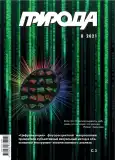The Volga-Akhtuba Floodplain: a Unique Ecosystem under the Anthropogenic Pressure
- Authors: Ovcharova A.Y.1, Kosulnikova T.L2, Sizeneva L.A2, Kazieva Z.M2
-
Affiliations:
- Городищенская средняя школа №1
- Волгоградский государственный аграрный университет
- Issue: No 8 (2021)
- Pages: 38-48
- Section: Articles
- URL: https://journals.eco-vector.com/0032-874X/article/view/628018
- DOI: https://doi.org/10.7868/S0032874X21080044
- ID: 628018
Cite item
Abstract
The Volga-Akhtuba floodplain is an oasis in the middle of arid semi-deserts and steppes. Here, among numerous lakes, oxbows, and channels, vast forests and flooded forb meadows spread out. The special microclimate of the floodplain is characterized by high humidity, comfortable summers, and mild winters. For residents of Volgograd Oblast floodplain landscapes are of great ecological, natural, balneological, recreational, and agricultural importance. However the regulated flow of the Volga, the proximity of a large city, and an uncontrolled influx of tourists preclude conservation of the unique nature of the interfluve. Conservation requires a whole range of environmental protection measures. The creation of the Volgo-Akhtuba Floodplain Biosphere Reserve in 2000 facilitate solutions to a number of environmental problems in the area, although the valuable wetland ecosystem is still under threat.
About the authors
A. Yu Ovcharova
Городищенская средняя школа №1
Email: ovcharova_82@list.ru
р.п. Городище, Волгоградская обл., Россия
T. L Kosulnikova
Волгоградский государственный аграрный университет
Email: kosmosleta@mail.ru
Волгоград, Россия
L. A Sizeneva
Волгоградский государственный аграрный университет
Email: vfatiso_em@mail.ru
Волгоград, Россия
Z. M Kazieva
Волгоградский государственный аграрный университет
Email: zraskalieva@mail.ru
Волгоград, Россия
References
- Брылев В.А., Овчарова А.Ю. Эколого-экономическая оптимизация обводнения Волго-Ахтубинской поймы. Известия вузов. Северо-Кавказский регион. Естественные науки. 2013; 5(177): 67–70.
- Лобойко В.Ф., Овчарова А.Ю., Никитина Н.С. Особенности водного режима Нижней Волги и его влияние на состояние северо-западной части Волго-Ахтубинской поймы. Известия Нижневолжского агроуниверситетского комплекса: наука и высшее профессиональное образование. 2018; 4(52): 89–96.
- Об утверждении Положения о природном парке «Волго-Ахтубинская пойма». Постановление администрации Волгоградской области от 22 июля 2016 года №389-п (с изменениями на 13 октября 2020 года). http://docs.cntd.ru/document/441604043
- Nikolaevna N.Z., Sizeneva L.A., Karaulova N.M. Tourist resources as object of theoretical investigations. Classification of tourist resources. Life Science Journal. 2014; 11(8): 616–619.
- Sizeneva L.A., Dyachenko A.V., Kosulnikova T.L. The metatheoretical study of the tourism system of the Volgograd region and the study of preferences of consumers of regional tourism products. International Journal of Engineering and Technology (UAE). 2018; 7(4): 502–514. doi: 10.14419/ijet.v7i4.38.24612.
- Овчарова А.Ю. Гидронимы Волго-Донского междуречья. Природа. 2020; 9: 42–48. [Ovcharova А.Yu. Hydronyms of the Volga-Don Interfluve. Priroda. 2020; 9: 42–48. (In Russ.).]. doi: 10.7868/S0032874X20090045.
- Овчарова А.Ю. Причины деградации ландшафтов Волго-Ахтубинской поймы. Известия вузов. Северо-Кавказский регион. Естественные науки. 2013; 1(173): 77–80.
Supplementary files











